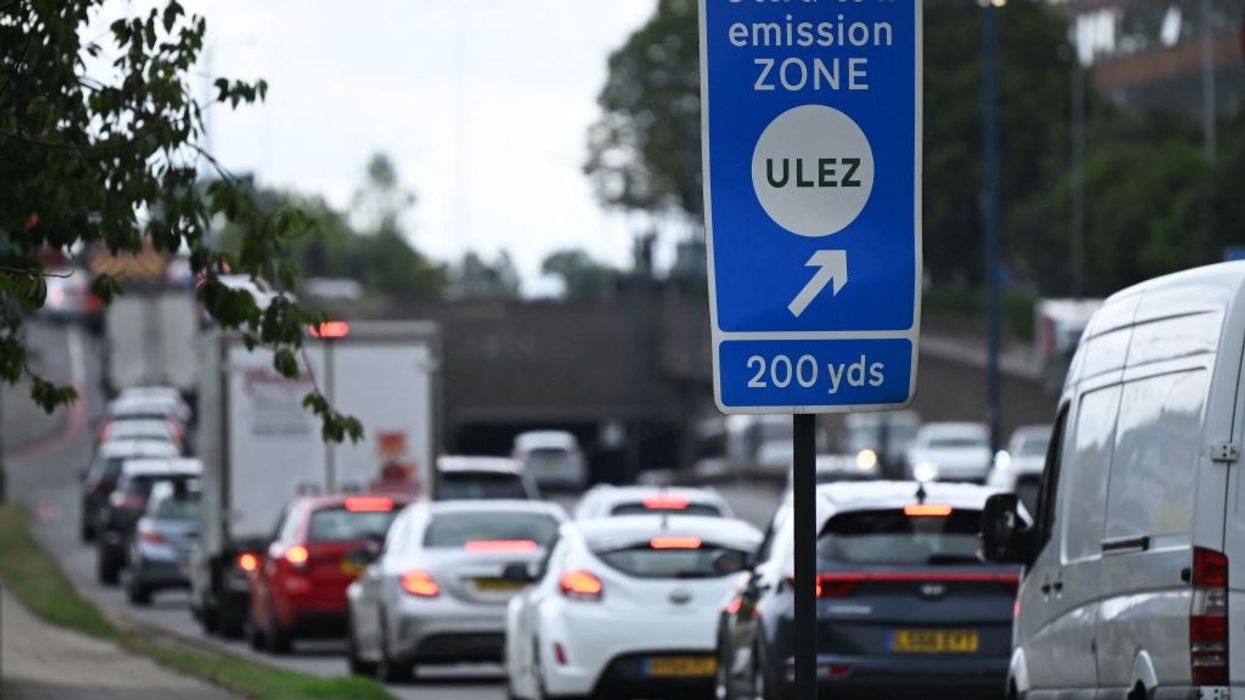LABOUR has ditched plans to roll out clean air zones across the country aimed at cutting carbon emissions after Uxbridge by-election defeat, reported The Telegraph.
A narrow by-election loss last month in outer London has been blamed on London mayor Sadiq Khan's expansion of the Ultra Low Emission Zone (Ulez), which will cover all of the city from August 29.
The Ulez, which imposes a daily charge of £12.50 on drivers of older, more polluting vehicles, has spurred concerns of economic damage during a cost-of-living crisis.
Meanwhile, Khan has defended it as vital to stop deaths linked to air pollution.
The clean air zones featured among Labour’s transport pledges in draft policy handbook at the party’s National Policy Forum last month.
“Labour supports the principle of clean air zones and recognises the huge damage to human health caused by air pollution and the damage to our climate caused by carbon emissions from polluting vehicles," the draft policy stated.
“However, they must be phased in carefully, mindful of the impacts on small businesses and low-paid workers, and should be accompanied with a just transition plan to enable people to switch affordably to low-emission vehicles.”
However, a Labour source confirmed the newspaper that the policy had been officially dropped and would not feature in the revised document.
The decision was taken just days after the party failed to win the Uxbridge and South Ruislip by-elections.
“Clean air zones are Tory government policy. The Tories are the ones who have pushed councils to introduce them. Labour is not in favour of extra burdens on drivers during a Tory-made cost of living crisis," a Labour source was quoted as saying by the newspaper.
“Labour’s priority is growing the economy to improve living standards and tackle the cost of living crisis, not pushing up costs for hard working families.
“We are committed to tackling air pollution and we will introduce a Clean Air Act, but we will always look at options for reducing air pollution which do not put the burden on hard working families.”
Labour leader Sir Keir Starmer said , “In an election, policy matters. And we are doing something very wrong if policies put forward by the Labour Party end up on each and every Tory leaflet."
However, there were some within the party who voiced concerns regarding the decision. Clean air zones already exist in Birmingham, Bristol, Newcastle and Bradford which are run by Labour.
“We’ve got to remember it is people living in the most deprived areas that are most affected by poor air quality. This goes to an essential value of Labour and we’ve got to seriously look at this before coming to office, because the consequences of not doing so will mean people could die unnecessarily," Rachael Maskell, Labour MP for York Central and former shadow environment secretary, was quoted as saying by The Telegraph.
She also urged the party to follow the science and ensure that no community experiences detriment.
Ken Penton, the co-chairman of the SERA – Labour’s Environment Campaign, blamed the Tories for passing the responsibility of complying with the legal obligation to improve air quality to local government.
Khan declined to comment on the policy change.





